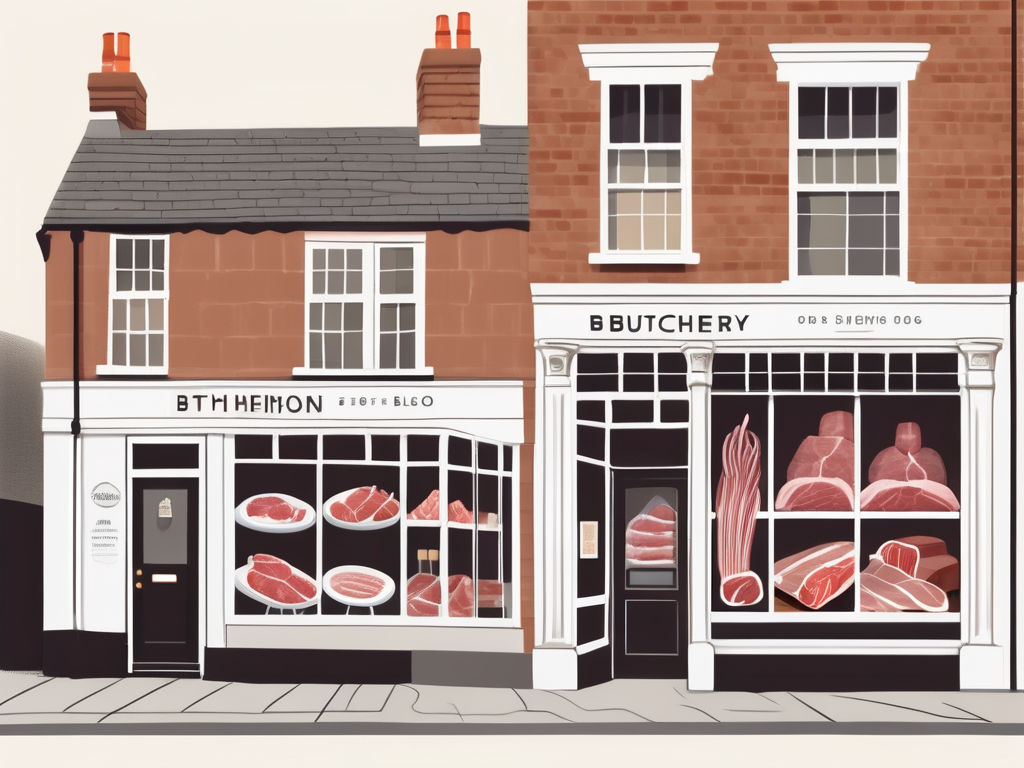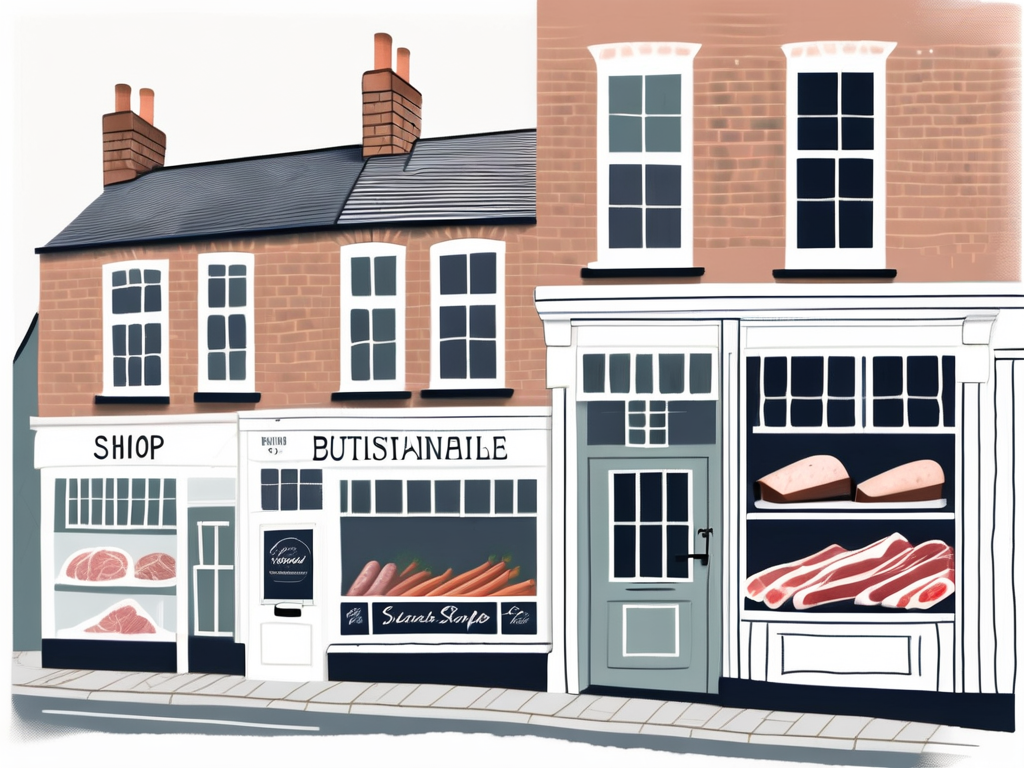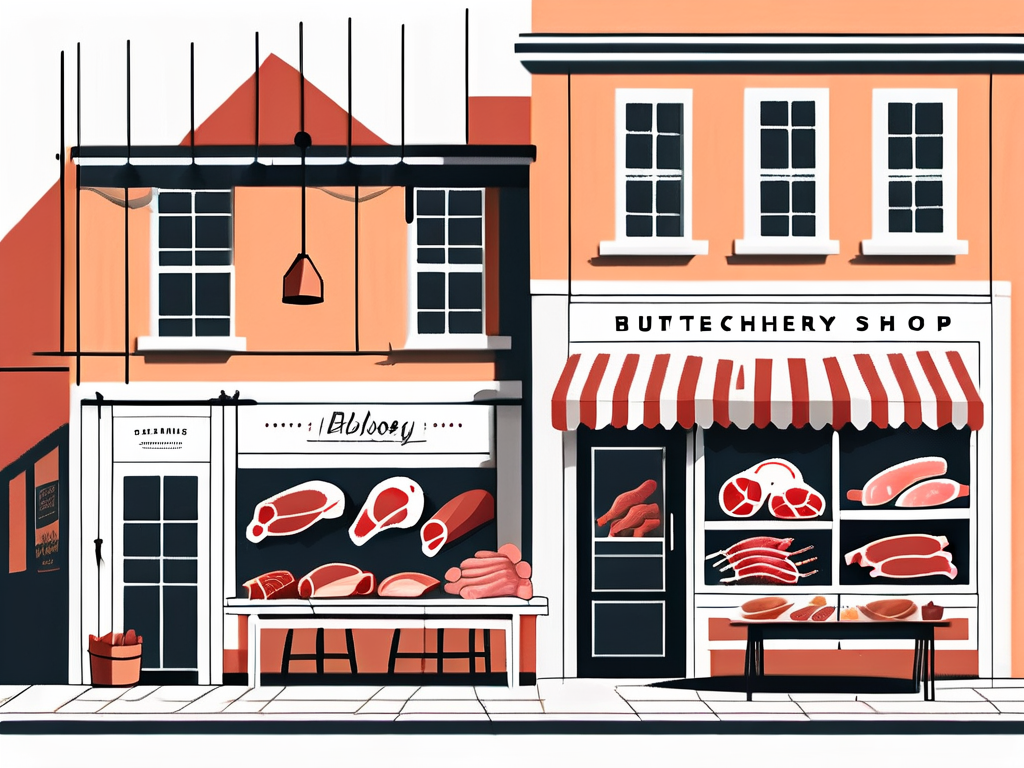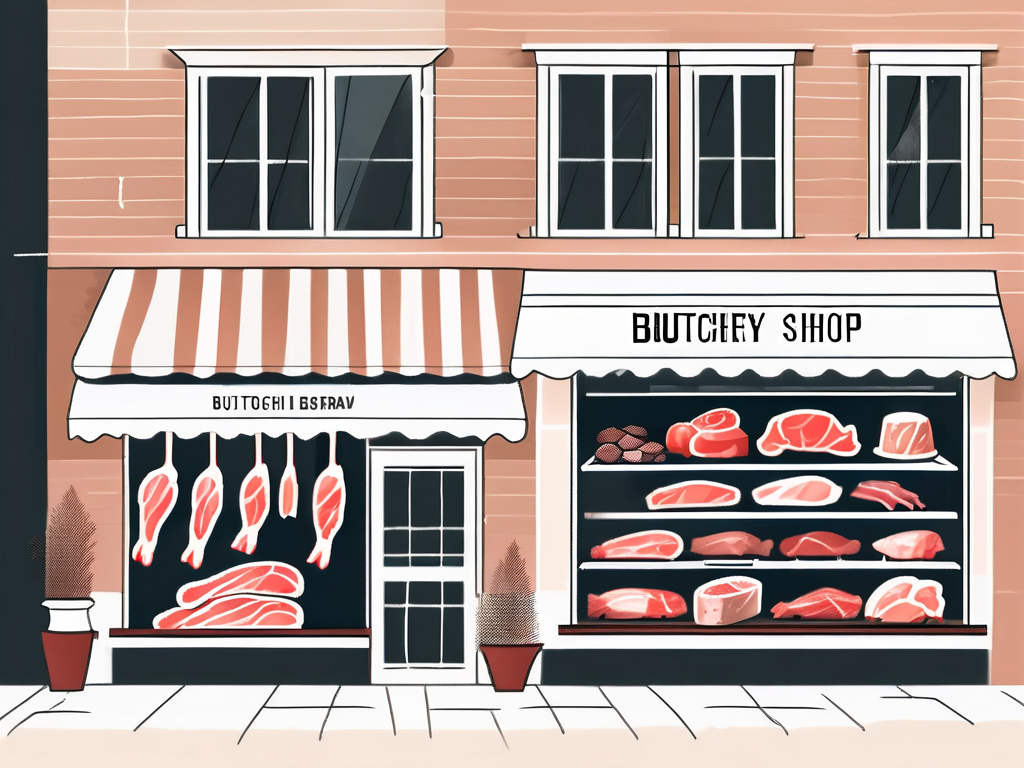Shop by Category
Editors Picks
Find out more
Every Town needs a Butcher

Why every Town in the U.K should have a Butchery Shop.
In recent years, there has been a resurgence of interest in local food and the importance of supporting small, independent businesses. One such business that often gets overlooked is the local butchery shop. Despite the rise of large supermarket chains and the convenience of pre-packaged meats, there are numerous reasons why every town in the U.K should have a butchery shop. In this article, we will explore the various aspects that make local butcheries vital for our communities and the environment.
Understanding the Importance of Local Butcheries
The Role of Butcheries in Local Economies
Local butcheries are not just places to buy meat; they play a crucial role in stimulating and supporting local economies. When people buy meat from local butchers, the money stays within the community, creating a multiplier effect. These businesses often source their meat from local farms, boosting the agricultural sector and fostering a sense of pride in the region’s produce.
Additionally, local butcheries contribute to the overall economic vitality of the community. By providing employment opportunities, they contribute to the growth and stability of the local workforce. Skilled butchers who have honed their craft over years of experience pass down their knowledge to the next generation, ensuring the preservation of traditional techniques. This transfer of expertise not only supports the local economy but also helps to maintain the unique cultural heritage of the region.
Furthermore, local butcheries serve as gathering places for the community. They are often hubs of social interaction, where neighbors meet and exchange stories while selecting their cuts of meat. These establishments foster a sense of belonging and community cohesion, contributing to the overall well-being of the residents.
The Health Benefits of Fresh, Local Meat
One of the most compelling reasons to support local butcheries is the health benefits of consuming fresh, locally-sourced meat. Unlike mass-produced meats found in supermarkets, which are often injected with preservatives and hormones, meat from local butcheries tends to be of higher quality and free from harmful additives.
Local butchers have a close relationship with farmers, allowing them to offer a range of grass-fed and free-range options. These meats are not only more flavorful but also contain higher levels of essential nutrients such as omega-3 fatty acids and vitamins. By choosing to purchase meat from local butcheries, individuals can prioritize their health and well-being while supporting sustainable farming practices.
Moreover, purchasing meat from local butcheries encourages a farm-to-table approach, promoting a closer connection with our food and an understanding of its origins. This connection can lead to more conscious and sustainable consumption habits. When we know where our meat comes from and how it is raised, we can make informed choices that align with our values and contribute to the overall health of our bodies and the environment.
In conclusion, local butcheries are not just places to buy meat; they are vital components of thriving local economies. By supporting these establishments, we can contribute to the economic growth of our communities, preserve traditional techniques, and enjoy the numerous health benefits of consuming fresh, locally-sourced meat. So, the next time you’re in need of some quality cuts, consider visiting your local butcher and experience the difference firsthand.
The Environmental Impact of Local Butcheries
Reducing Food Miles and Carbon Footprint
An often overlooked aspect of local butcheries is their positive impact on the environment. When we purchase meat from supermarkets, it has often traveled long distances before reaching our plates, resulting in high food miles and a significant carbon footprint.

Local butcheries, on the other hand, source their meat locally whenever possible, reducing the need for long transportation routes. This not only decreases greenhouse gas emissions but also supports local farmers and reduces our reliance on global food systems.
Furthermore, by choosing to support local butcheries, consumers can also enjoy the benefits of fresher and higher quality meat products. Local butchers often have closer relationships with their suppliers, ensuring that the meat is of top-notch quality and has undergone less processing and preservation, leading to a more sustainable and healthier choice for consumers.
Promoting Sustainable Farming Practices
Local butcheries often form partnerships with small-scale, sustainable farms that prioritize animal welfare and environmental responsibility. These farms implement practices such as rotational grazing, regenerative agriculture, and minimal pesticide use.
By supporting local butchers, we indirectly support these farms and contribute to the preservation of sustainable farming practices. This, in turn, helps to maintain biodiversity, protect soil health, and combat climate change.
Moreover, the emphasis on sustainable farming practices by local butcheries also extends to waste reduction and resource efficiency. Many local butchers prioritize utilizing the entire animal, minimizing waste and ensuring that every part of the animal is put to good use. This approach not only reduces environmental impact but also aligns with the principles of a circular economy, where resources are utilized efficiently and waste is minimized.
The Social Benefits of Local Butcheries
Fostering Community Relationships
Local butcheries are more than just places to buy meat; they serve as community gathering spots. Customers and butchers often develop personal relationships, creating a sense of familiarity and belonging. The opportunity to have a conversation, seek advice, and exchange recipes adds a human touch to the shopping experience that cannot be replicated in larger supermarkets.

These relationships extend beyond the butcher-customer dynamic and can foster a sense of community. Butcheries often collaborate with local producers, bakers, and artisans, creating a network of small businesses that support and rely on each other. This interconnectedness strengthens the social fabric of towns and promotes a thriving local economy.
Additionally, local butcheries frequently host events such as cooking classes, tasting sessions, and community fundraisers. These activities not only educate the public about different cuts of meat and cooking techniques but also provide opportunities for socializing and networking. By bringing people together around a shared love for food, local butcheries play a vital role in building a sense of unity and camaraderie within the community.
Encouraging Local Employment Opportunities
Local butcheries provide employment opportunities for individuals in the community. These jobs often require specialized skills, and by supporting local butchers, we ensure the preservation and transmission of these abilities to future generations.
Moreover, the presence of local butcheries can attract visitors from neighboring areas, boosting tourism and creating secondary employment opportunities in restaurants and other local businesses. The economic ripple effect can be significant within small towns and rural areas.
Furthermore, local butcheries are known for their commitment to sourcing meat from nearby farms and suppliers, promoting sustainability and ethical practices. By prioritizing locally sourced products, these butcheries support small-scale farmers and contribute to the preservation of traditional farming methods. Customers can feel confident knowing where their meat comes from and that it was raised in a humane and environmentally responsible manner.
Challenges and Solutions for Establishing Local Butcheries
Overcoming Financial and Regulatory Hurdles
Establishing a local butchery can be challenging due to financial costs and regulatory barriers. High-quality equipment, meat storage facilities, and compliance with food safety regulations require significant investment.

However, there are solutions to these challenges. Local authorities can provide financial incentives and support for aspiring butchers. Collaboration with agricultural organizations and educational institutions can offer training programs and mentorship to individuals interested in pursuing a career in butchery. Additionally, community-driven initiatives and crowdfunding campaigns can help raise funds for the establishment and maintenance of local butcheries.
Moreover, navigating the complex landscape of regulations and permits can be daunting for new butchery businesses. From health and safety standards to zoning requirements, ensuring compliance with all necessary regulations is crucial. Seeking guidance from legal experts specializing in food industry regulations can help streamline the process and avoid costly mistakes.
Addressing Public Perception and Demand
In recent years, the convenience and affordability of supermarket shopping have led to a decrease in demand for traditional butchery shops. However, there is a growing movement towards supporting local businesses and embracing sustainable consumption practices.
To address public perception, local butchers can tap into the growing demand for transparency and ethical sourcing. Educating consumers about the benefits of buying from local butchers, such as higher quality and traceability, can shift consumer behavior and ultimately drive demand for these establishments.
Furthermore, establishing partnerships with local farmers and ranchers can enhance the appeal of local butcheries. By sourcing meat directly from nearby producers, butchers can offer customers fresh, locally sourced products while supporting the regional economy. Building a network of trusted suppliers and highlighting these relationships can differentiate local butcheries in a competitive market.
The Future of Butcheries in the U.K
The Potential for Growth and Expansion
Despite the challenges, there is significant potential for growth and expansion of local butcheries in the U.K. As consumers become more conscious of the impact of their choices, the demand for high-quality, locally-sourced meat is likely to increase.
It is essential for local butcheries to adapt to changing consumer preferences by diversifying their offerings. They can introduce innovative products such as ready-to-cook meal kits, specialty cuts, and artisanal charcuterie, attracting a broader customer base and ensuring long-term sustainability.
Moreover, local butcheries have the opportunity to collaborate with nearby farms and suppliers to create a farm-to-table experience. By establishing direct relationships with farmers, butchers can ensure the highest quality of meat and support local agriculture. This not only strengthens the local food system but also provides customers with a deeper connection to the source of their food.
The Role of Technology in Modern Butcheries
Technology can play a significant role in modernizing and enhancing the operations of local butcheries. From online ordering and delivery services to digital marketing and inventory management systems, embracing technology can streamline processes, improve customer experience, and reach a wider audience.
Furthermore, technological advancements in sustainable packaging and waste reduction can help local butcheries minimize their environmental footprint. Implementing efficient cooling systems and renewable energy sources can further contribute to a more sustainable future for these businesses.
Additionally, technology can enable butcheries to provide personalized services to their customers. With the use of digital platforms, butchers can offer customized meat cuts, tailored to individual preferences and cooking styles. This level of personalization enhances the overall customer experience and fosters loyalty.
In conclusion, every town in the U.K should have a butchery shop due to the multitude of benefits they provide. Local butcheries stimulate local economies, offer health benefits through fresh, local meat, and reduce the environmental impact of long-distance food transportation. They also foster community relationships, create employment opportunities, and contribute to a thriving social fabric. While establishing and maintaining local butcheries present challenges, creative solutions and changing consumer preferences offer a promising future for these vital businesses. By recognizing the value of local butcheries and supporting them, we can contribute to a more sustainable, resilient, and thriving U.K food system.
Login
Find our store
Enter your town or postcode to see how far you are from us:
Location saved!
Thanks. You can now get directions to our store in Didcot.



